Heavy Medal Mock Newbery Finalist: PRAIRIE LOTUS by Linda Sue Park

Introduced by Heavy Medal Award Committee member Courtney Hague
From the development of the plot and the delineation of the characters to appropriateness of the style, PRAIRIE LOTUS by Linda Sue Park is distinguished in many ways.
Let’s start by talking about the appropriateness of the style in this book. Linda Sue Park makes it very clear that this book is in conversation with the LITTLE HOUSE books by Laura Ingalls Wilder. This book is told in a similar style which is very straightforward and plot driven. Hannah, our protagonist, is trying to live a normal life as a pioneer child. She takes care of her father, performs many domestic tasks, goes to school, and dreams of being a dressmaker. The one very distinctive difference is her identity as a biracial Chinese American. The delineation of what racism toward Chinese and Chinese American people looked like in pioneer times is what really sets this book apart.
The plot also is very neatly developed. It is very clear what is happening and what may or may not happen in this book; there are minimal surprises with the exception of the assault that happens near the end of the book. I think this works exceptionally well for this style of book. It helps to highlight the setting and the themes are presented in a really clear way.
ADVERTISEMENT
ADVERTISEMENT
Last, we cannot talk about PRAIRIE LOTUS without talking about the characters themselves. Hannah is such a sweet young woman. She wants to find a place for herself in the world and she is willing to do what it takes to get there. Her determination both to start and finish school and to become a real dressmaker are evident throughout the book. She is stubborn and resilient.
PRAIRIE LOTUS is a welcome addition to the realm of Middle Grade historical fiction.
Filed under: Uncategorized
About Steven Engelfried
Steven Engelfried was the Library Services Manager at the Wilsonville Public Library in Oregon until he retired in 2022 after 35 years as a full-time librarian. He served on the 2010 Newbery committee, chaired the 2013 Newbery Committee, and also served on the 2002 Caldecott committee. You can reach him at sengelfried@yahoo.com.
ADVERTISEMENT
ADVERTISEMENT
SLJ Blog Network
The 2024 Ninja Report: Bleak
A Sequel Coming This Summer That You Won’t Want to Miss: Bob Shea Discusses His Latest
Review| Agents of S.U.I.T. 2
Navigating the High School and Academic Library Policy Landscape Around Dual Enrollment Students
Happy AANHPI Month! A guest post by Malia Maunakea
ADVERTISEMENT



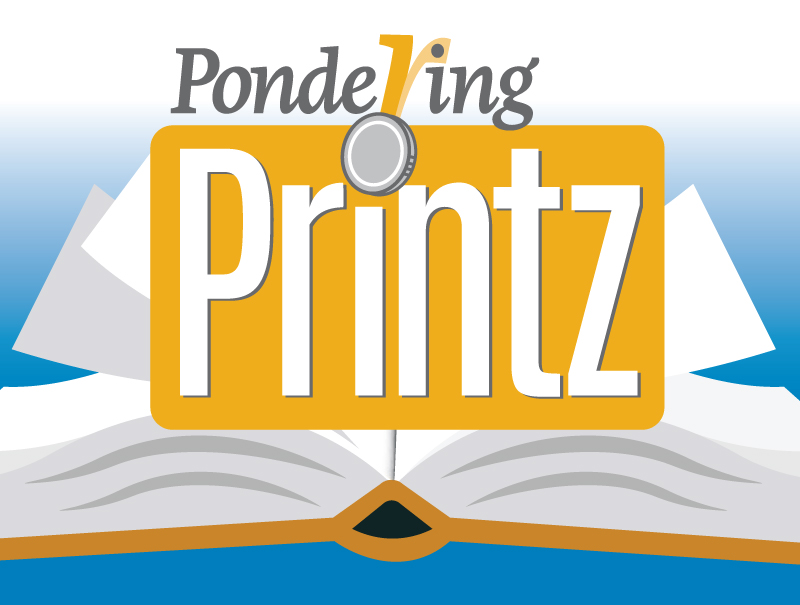
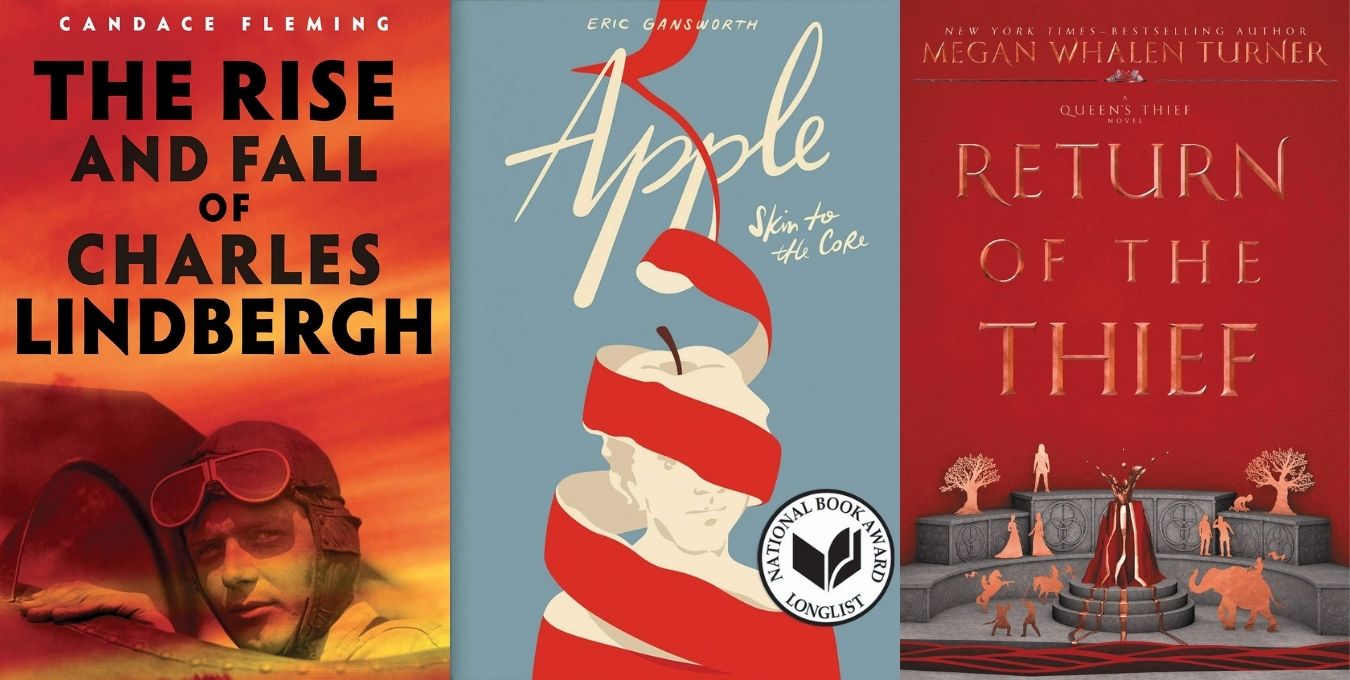
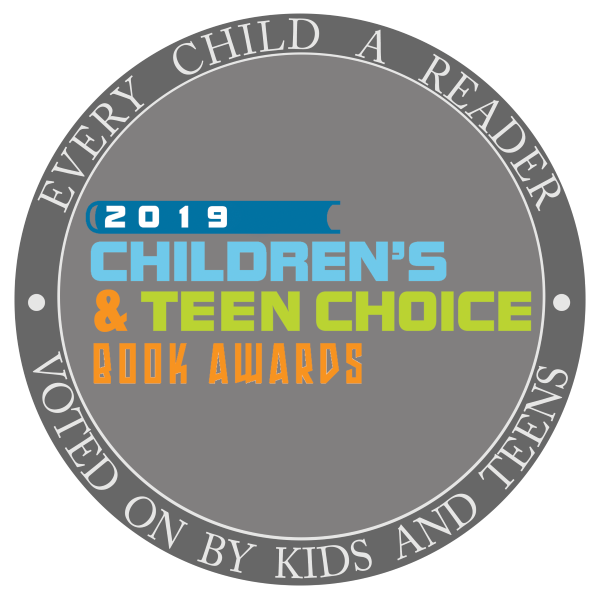
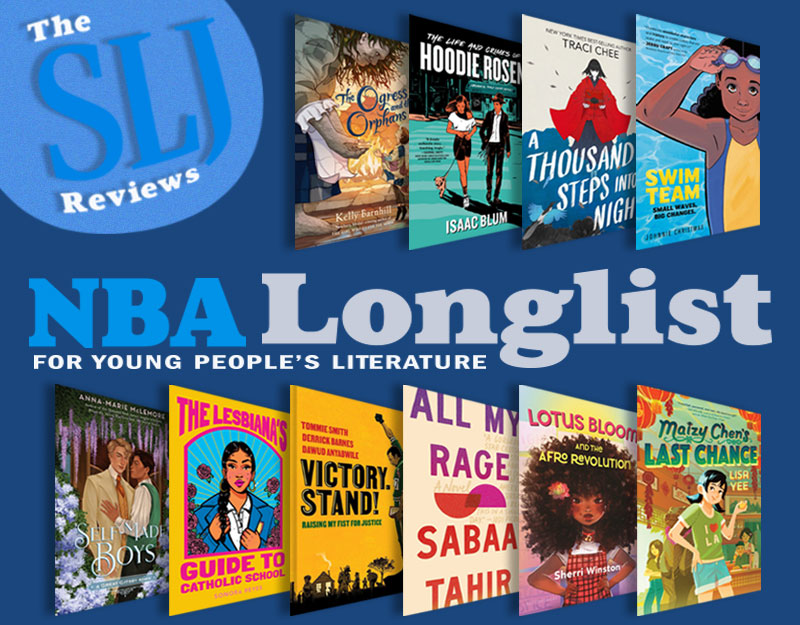
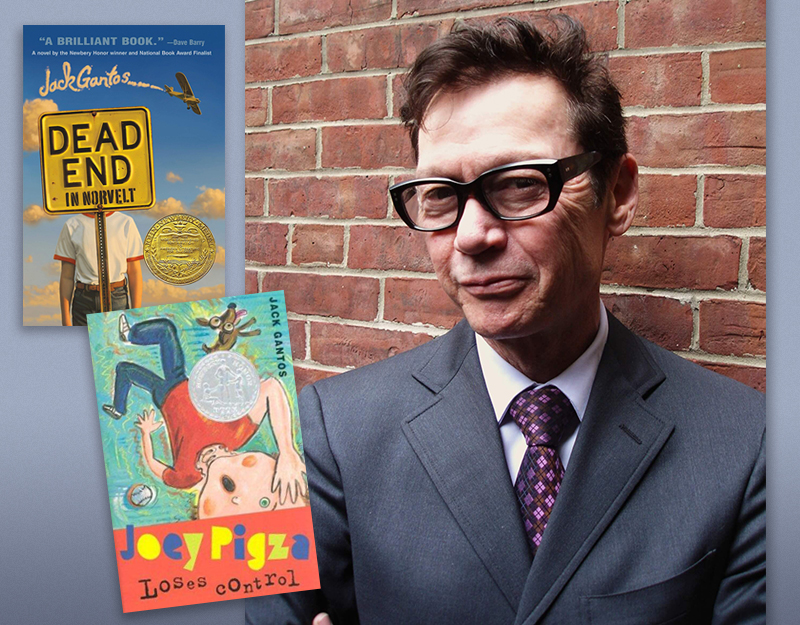
Thanks for the intro, Courtney! Something I think this book really drives home is how hard life can be for people lacking in allies. Hannah spends so much of the book trying to manage her father and his bad temper, trying to get him to take her seriously, that it never really feels like he’s actually there for her. With the women and girls in the town, Hannah has to constantly walk this tightrope of trying to stand up for herself without alienating potential clients, when very few people are predisposed to think well of her due to her race. Even after Hannah is assaulted, and she goes looking for help, Bess and their former teacher will only give that help in a way they know will not damage their own social capital, because they know their own situations are precarious, too (though not as much as Hannah’s), despite everyone in town knowing that those men were reprobates. Even the end of the book isn’t exactly “happy”: Hannah has evidence that she’ll be able to settle in the town, but the likelihood of true acceptance from everyone probably won’t happen, which is very believable. At least her father seems to be listening a little better by then.
Considering Hannah’s delicate social position, I think it’s no wonder that she’s the kind of character who thinks before she speaks and acts, and that she’s very introspective. I think she shows a lot of strength.
I really appreciated Prairie Lotus. To my mind, its greatest strength lies in its conversation with Little House on the Prairie. Writing a book that is both an homage and a critique of its originating work while also ensuring that the book also stands as its own work is a balancing act, and I think that Linda Sue Park struck the balance. I imagine that readers unfamiliar with Little House on the Prairie will read and appreciate Prairie Lotus, while readers familiar with Laura Ingalls Wilder will find new things to ponder. While reading Prairie Lotus, I found myself thinking about the relationship between Jane Eyre and The Wide Sargasso Sea. Young adult readers have plenty of examples of literature that draws clearly from the classics available to them, but middle grade readers have fewer that I can think of. This is a welcome addition.
In delineation of character, I found Hannah to be compelling. She is, hm, compassionately sneaky in the way that she convinces her father to set up the storeroom in such a way that it can eventually double as a dressmaking workroom and very clear-eyed about the limits of her obedience to her father.
Kirsten, yes, the dialogue with Little House is one of the most original aspects of this book. I don’t think I would characterize Hanna’s response to her father as “compassionately sneaky,” although I do like the phrase! She is quite acquiescent to his demands, which I think just makes the character more realistic in the context of her time, not ours.
I think we made it to voice of dissent time.
In general this book, did not sit right with me. I read a lot of blogs and it seems like Park did a good job at portraying the Native people, which is crucial- https://indigosbookshelf.blogspot.com/2020/02/a-fight-over-1800s-in-kid-lit-remember.html
I struggled most with Hannah’s character, I felt like she was made to be too “perfect,” always coming up with the best solutions, always wanting to fight the good fight… it just did not seem realistic to me for a young girl.
I feel like although the book was well written and the imagery specifically was phenomenal, it still rang flat. It seems too much like an “agenda” with me, written solely to be a rebuttal to Little House.
I really don’t think it was a rebuttal; it was a dialogue. A rebuttal would have been much less ambiguous.
I was a big Little House fan as a child, and I could tell that Park was also. But she also knew that life on the prairie would not have been the same for Laura as it would be for her as an Asian American. So, Park wrote the tale of an Asian American who became friends with a girl similar to Laura Ingalls.
I can appreciate that Park was trying to fall into the world, but it can be difficult to honestly depict how hard it would be to deal with racism and being a woman at that time while also trying to promote equality for a modern audience. People may find Hanna’s father harsh, but it would have been common for a father not to treat his daughter with equality at that time. I was surprised of Hanna’s point of view of her parents’ relationship – that they were partners in the store. It would have been uncommon for any woman to be thought of as her husband’s equal. I agree that Hanna can feel too perfect, and it sometimes feels like she is an ideal more than a real character. It may have helped if some of the other characters were fleshed out a little more so that we could have gotten their perspective.
I especially appreciated Parks treatment of Native Americans in this story and the authentic friendship between Hanna and the Harris girl. The scene which I loved was when Hanna serves Mrs. Harris tea, thereby showing her that those of another race are not inferior. The vivid setting did so well at evoking Wilder’s books while providing a wholly original story that addresses the harsh reality of racism.
Now for some quibbles: Like Ms. Emily, I felt that Hanna was too 21st-century oriented. Yes, she wants to be a dressmaker, which is a realistic desire for a pioneer girl, but she also has some very modern ideas. I simply felt that her character was a bit incongruous at times, although I did like her. I never connected with Hanna’s father and thought he only seemed to agree with Hanna when it benefited him in some way. Perhaps this is too harsh an assessment.
In a year that has so many books about abuse and assault, I felt that the attack on Hanna was unnecessary and too quickly resolved. The assault occurs near the end of the book, so of course that plot point would have to have been resolved quickly, but it just seemed to be an unnecessary plot point to add to the story. It seems that Parks could have left that part out without the story’s outcome being changed.
Prairie Lotus is well-written and a wonderful homage to Laura Ingalls Wilder. I just think that in a year of distinguished books, there are others that might fare a bit better in terms of Newbery consideration. I did love that this book was related in the third person point of view. There are so few books that seem to be written in that POV now, and I love that Parks’s sentences have a similar style to the Little House books but are totally her own.
Meredith, your point about the assault makes me think more about that part of the book. It did seem somehow less integrated into the plot and relatively quickly resolved, in a way which might assuage modern readers.
I hear what people are saying about Hanna feeling too perfect, but again, I read it a little bit differently. How I interpreted her behavior, is that of a young woman who couldn’t afford to mess up. Since she has so few allies, she has to constantly watch what she says and what she does, because if she “does wrong” in the peoples’ eyes, her chance at a real future are gone. Even in the case of the assault: she didn’t do anything wrong, and she still almost lost her shot at being a dressmaker. I read her character as that of a very determined, clever, but still somewhat scared girl doing the best she could to carve out a place where she could thrive a little. As a result, she’s often very timid, especially at school, and thinks really hard before she speaks or acts.
I also really like how Park portrayed the Native Americans, and I appreciate the research she put into that aspect of her book. I also appreciate Hanna’s attitudes towards them, and how they gradually evolve. I know we talked about this before when we discussed the book, but I guess I have strong feelings about this particular work.
First: Hanna meets the Native Americans, when she’s alone. She’s scared, and, to avoid trouble, she remembers some of her mother’s advice, and she offers them food. They exchange food, and things go smoothly. She’s no longer quite so scared of them.
Second: Hanna meets them again, while she’s looking for flowers, and they’re looking for food. There’s another exchange with prairie turnip. Hanna now really isn’t scared of them, though she still feels a bit awkward when trying to communicate.
Third: Hanna speaks without thinking (one of the only times in the book) to her father about the Native Americans, and he feels the need to report them. Hanna feels badly that she might get a group of women and children into trouble, when they were only looking for food.
Fourth: The idea that a group of Native American women and children might get into trouble over something as innocuous and innocent as searching for food makes her ponder white peoples’ attitudes towards Native Americans in general. Seeing that she is a rather thoughtful and insightful person, as well as a minority who is often the target of racial nastiness, this does not seem far-fetched to me.
Anyway, I’ve said a lot about my opinions on this book, so I think my time is up! Needless to say, I think this one is great. I think Hanna is great, and the setting is great, and the plot is solid. But we all have our own readings, and I do respect that. Thanks for reading my soapbox!
This is incredibly painful for us to write. We wish other people would do the work and have a critical eye on Native rep.
Alexis: I’m enrolled FL Seminole. Charlie: I’m enrolled Black FL Seminole. Thank you Emily Mroczek (Bayci) for posting a link to our blog. We have gotten more hate mail over that blog than any other because Park is a beloved writer. We ‘ve enjoyed many of her books growing up. Not this one.
Alexis: LHOP is THE anti-Indigenous, racist classic in children’s literature. There is simply no way to pay tribute to it while criticizing it. Aud, you trace the progress you see with the “Native American” (we’re pre-American and identify by nation, tribe, band, clan) characters. We see none. They’re highly stereotypical–without individual personalities, interests and dreams. That none of the Ihanktowan women speak English at this time (1880) is unrealistic and it dehumanizes them for young readers who don’t understand what they’re saying. Kind of the way subtitles state “speaking foreign language” even with Spanish because it doesn’t matter to the English-speaking characters and audience. Hannah’s clever game of figuring out what they’re saying centers her like everything else in the book. I go into other particulars in the blog. Park stans LHOP and was simply unable to break free and write a book about a girl like Hannah without using it as a reference point, which absolutely could have been done by someone of her talent. The conception was problematic and looks far worse after everything Indigenous Nations have faced in 2020.
Charlie: I’m troubled by the back matter. Why does Park mention blackface without unpacking it (to be fair, there are only two or three children’s book authors who I think could do it, and I’m not sure they’d take it on) and then include that cringe quote about Wilder shaking a Black man’s hand? As Alexis quoted me in the blog: those aren’t her terms to negotiate. You simply cannot “fix” Wilder’s legacy and books. Many immigrant narratives lean into whiteness (like the Nayeri book: “before the state was Oklahoma…”) and don’t take into account Indigenous people or descendants of enslaved Africans unless it’s a reference to pop culture like rap. As a biracial teen, I wonder about Hannah’s mom being fridged and her identity as Chinese American with one Korean grandparent—but that’s not my wheelhouse. People call this a historical novel, but it’s not a natural historical setting—it’s engineered with the same mechanisms as fan fiction. I’m Two-spirit/Indigequeer. I can’t imagine a successful kids’ book “in conversation” with a srsly queerphobic book. I don’t understand the desire except to justify your problematic favs.
Like Alexis said, times are bad for us. My dad almost died of Covid and many more are sick. We don’t like being negative and wish others saw and discussed these issues (TY, Emily!). Or, at least, didn’t insist this was great Native rep! You could have focused on any. other. aspect. Y’all insisting: ‘this cool’ is too much. But we’ll be back to praise Afro-Indigenous and Indigenous rep in another title.
Thank you for taking the time to talk to us. I did try to read up on the indigenous representation even before I picked up the book, and I tried to follow up later, but I see I didn’t read far enough, and for that I apologize. I also apologize for my own rude phrasing. I’ll learn from this and do better in future.
I have a request — could you describe to us what a book “about a girl like Hannah without using it [LHOP] as a reference point, which absolutely could have been done by someone of her talent” would look like? Would it have been better just to omit those scenes or would that be unsatisfactory because of erasure? You mention portrayals “without individual personalities, interests and dreams” but would that have been possible? It seems that would only be possible if, as you say, at least one had spoken English. But even with the character of Hanna’s mother, Park walks a delicate line with speech. For example, “First daughter. Best, number-one daughter. . . . Girl, like me. Half-half, like me. This character means ‘double happiness.’ That’s you. You are my double happiness” (52). To me, this felt like Park was trying so hard to keep Hanna’s mother’s English free of outright mistakes but still convey (through the very brief units and idiosyncrasies) that it’s not her native language. But if she had the Ihanktowan women speak similarly, would that not also be extremely fraught (given that a component of negative, stereotypical portrayals is often “bad English”?)
In summary, you say Park “absolutely” could have done better, and I would like to know what that better looks like. I had some problems with this book too (but, as you may guess, from the Korean perspective) but I don’t actually know if they could be fixed.
Alexis: Leonard Kim—thanks for your response. To be frank, I can’t “describe to us what a book “about a girl like Hannah without using it [LHOP] as a reference point, which absolutely could have been done by someone of her talent” would look like?” I have no idea. I said that to add a conciliatory note because our group of Florida Indigenous youth (ages 12-20) have been hit hard for previous criticism of the book. Charlie and I debated speaking up and wouldn’t have if the conversation around the book wasn’t centered on the Indigenous representation.
I’ve always been frank that non-Indigenous authors including Native content is a ‘damned if you do, damned if you don’t’ proposal. In my blog which discusses three 2020 MG novels that take place in the 1800s, I state: “If you don’t acknowledge this basic fact in our colliding, brutal histories, you are practicing erasure and will be called out for it. If you do acknowledge it, you most likely will be criticized for not getting everything right.” I conclude by saying (speaking for the group) that the deal-breaker for us is: “Who was it written for? Can Native children find pride in this representation? That’s what I’m looking at and asking others to think about no matter what their backgrounds.” None of us found that in Prairie Lotus. Ex. We found the Ihanktowan girls’ constant giggling not just bizarre under the circumstances but frustrating and embarrassing.
The Patuxet man Tisquantum (Squanto) spoke fluent English when the Mayflower arrived because he had already been kidnapped, brought as a slave to Europe and returned to find his Wampanoag tribe extinct. The Sioux that Park writes about encountered Lewis & Clark and went to Washington, D.C. to negotiate a treaty in 1857. I don’t see any reason to write Native characters speaking stereotypical pidgin English. (Note: Park doesn’t say English illiteracy is why she used a Native language—it’s an artistic choice.) I can’t say how it relates to “walking a delicate line” with Hannah and her mother–except that her mother hadn’t spent centuries on the land dealing with colonizers and missionaries.
You write, “You mention portrayals “without individual personalities, interests and dreams” but would that have been possible?” I believe so and will discuss more with another title tomorrow. I’ve read your review and comments and respect your POV. In truth, I don’t think the book could be fixed either. Sorry I went on so long!
Thank you so much for taking the time to respond here. I, like Aud, did try to look into the indigenous representation in this book, but clearly didn’t go far enough. Thank you for your time and patience.
Please don’t apologize, Aud. We think you’re awesome! We all can’t know what we don’t know till we know it. We’re still working on our own gaps–prejudices that run wild in our gen like Anti-Semitism and ableism. We learn from each other. And we’re sad that Prairie Lotus was a missed opportunity. Shonabish!
Thank you for this eye-opening viewpoint. It’s so easy to think a certain way when you don’t know all the facts. I’d just assumed Native American was the proper terminology. Also, I didn’t realize that the language barrier with Hanna and the women was a false representation. That’s very interesting.
I apologize for any offense and look forward to hearing your take on other titles.
Thank you so much for commenting here, Alexis and Charlie.
As a little girl I was a great fan of the LHOP books. I grew up in Minnesota and later lived in North Dakota and I could identify with the prairie life shown in the books. It wasn’t until I was grown that I saw the racism that was portrayed in the books, so as a teacher I pulled them out of my classroom library, and always wanted a less bias replacement written. I now live in Utah and we recently celebrated the 150th anniversary of the driving of the Golden Spike and the completion of the transcontinental railroad. During those celebrations the chinese community pushed for more recognition of the great contribution that Chinese immigrants gave to the completion of the railroad. There were discussions of the racism, poor living conditions and the stereotypical view of the Chinese immigrants at this time in history during this celebration. So needless to say, I was excited when Park wrote “Prairie Lotus”, especially since it was written from the perspective of a biracial Chinese American girl. I thought “Prairie Lotus” would be a great book for Utah children to read, as it shows the delineation of what racism toward Chinese American people looked like in pioneer times.
I loved the complexity of Hannah’s character, Her fiery spirit, spunkiness, and determination, even when subjected to ridicule and racism. I cheered for her to find her place in the world. I felt the book was well written, it was plot driven and neatly developed.
I thank Alexis Redhorse and Charlie Longbow for showing me the racism of the Indigenous representation in this book. I know there has been criticism of this book through BIPOC, and that may be enough to take this book out of Newbery contention, but I still believe Park is a beloved writer.
I have enjoyed the many perspectives on this discussion of Prairie Lotus. Admittedly, I am such a sucker for historical fiction; it’s my go to genre. Of the 15 titles up for discussion I believe four are historical fiction, and I do not believe Prairie Lotus stands above any of those. Though I enjoyed the book, it just didn’t measure up to or hit the level of “distinction” I’m looking for in a Newbery contender.